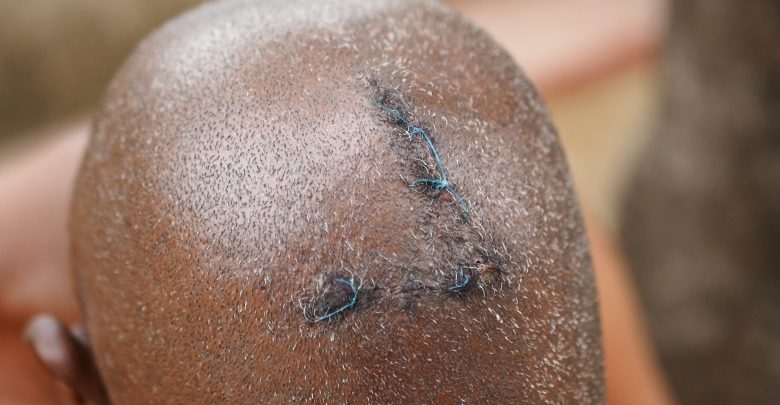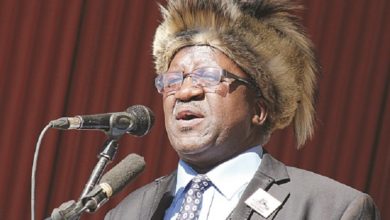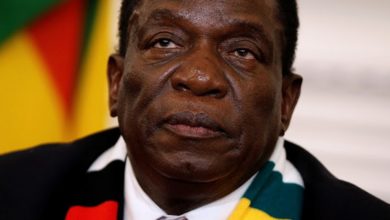Army crackdown: City residents recount horror stories

BY LULU BRENDA HARRIS/ABIGIRL KHUPE/ ZENZELE NDEBELE
BULAWAYO residents have recounted how they were brutally tortured by soldiers and police officers at the height of the continuing clampdown against dissent by security forces in the aftermath of recent mass protests.
Zimbabweans on January 14 began protests against a steep fuel price increase announced by President Emmerson Mnangagwa before his controversial Eurasia jaunt.
According to human rights groups, 12 people were shot dead and hundreds were treated for gunshot wounds countrywide following the brutal crackdown that began January 14 when the Zimbabwe Congress of Trade Unions (ZCTU) organised stay-away turned violent.
Dubbed #ShutdownZimbabwe, the strike that was initially scheduled for three days, stretched for over a week as the killings and widespread torture of civilians mostly by the army forced workers to stay indoors.
As the chorus of condemnation against the brutal response by Mnangagwa’s government grows louder across the globe, horrific stories of gross human rights violations by security forces are emerging.
Bulawayo, which alongside Harare became the epicentres of the protests, is still enveloped in fear due to the extreme violence.
Armed soldiers have been conducting nightly raids in the city’s high density suburbs targeting men for torture in scenes reminiscent of the 1980s siege on Matabeleland and the Midlands by the army during an operation known as Gukurahundi.
Henry Dube of Cowdray Park said he was at home with his family when riot police descended on them with teargas on January 15.
“The riot police were engaged in running battles with some youths from the neighbourhood and I went outside to see what was happening,” he said.
“While I was still chatting with my neighbour, the police officers ordered us to go indoors.”
Dube said the police officers then threw a teargas canister into his yard, catching his children, including one who is disabled and asthmatic, unawares.
“I confronted them demanding to know why they had thrown the canister, putting my children in danger,” he added.
“They turned on me and one of them hit me with a truncheon on my left arm.
“They dragged me out of the yard and continued assaulting me on the head until I lost consciousness. I was left for dead.”
Inside the house, Dube’s pregnant wife and children were suffocating in tear smoke.
He sustained a deep cut on his head and still does not know what weapon the police officers used to assault him.
“I sustained a deep cut on the head,” Dube said. “Some people said they heard gun shots. I suspect that I was grazed by a bullet.”
He said he was still suffering from excruciating pain on his left arm and was traumatised by the incident.
Bukhosi Gasa from Mpopoma said he was tortured by a group of soldiers and police officers, who mounted a roadblock at Mzilikazi high density suburb on Sunday at 2AM as he drove from the city centre.
“The roadblock was manned by soldiers and police officers,” he said. “Some cars were parked along the road and the owners were lying on the tarmac face down.
“The soldier who was searching my car suddenly accused me of beating up a policeman and ordered me to join others who were lying on the tarmac.”
The motorists were then ordered to march to a kiosk at the nearby Engen Garage where the beatings began.
“There were young boys who were also beaten up but we could not see properly who else was in the group because it was dark,” Gasa said. “The soldiers and police officers took turns to beat us up.
“They said the number of lashes one got were proportionate to age.”
Gasa did not seek medical treatment fearing further victimisation.
“I was punished for something that I did not do,” he insisted. “What those soldiers and police officers did to me was bad.”
However, for some victims like 18 year-old Tendai Phiri* they were caught in the crossfire as shop owners tried to fight back against people looting their businesses.
Phiri was shot three times along Pumula Road by two men driving a Honda Fit vehicle.
Her family believes she was shot by people linked to a supermarket in Pelandaba, which had just been ransacked by looters.
“I had just ventured outside to look for my two young siblings who I feared had been caught up in the skirmishes,” said Phiri as she narrated her ordeal after she was discharged from Mpilo Central Hospital on Monday.
“Suddenly two men in a Honda Fit approached me near the Seventh Adventist Church and they started shooting indiscriminately,” she added.
“I was shot on the right arm and twice on my right thigh as I tried to flee. A man tried to stop the car but the two managed to drive away.”
Phiri said the men were in civilian clothes and used a black pistol.
Doctors at Mpilo Hospital on Monday removed a bullet that was still lodged in her thigh and it was collected by the police.
Phiri’s mother claimed that her daughter was shot by people linked to the named supermarket even though she was not part of the looters.
“The residents are even willing to testify that she was not at the scene as she was about 3km away from the shops. The people know the culprits,” the distraught mother said.
She said the owners of the supermarket had not contacted the family since the incident.
Phiri was discharged from the hospital on Monday but her mother said the family had no money to settle the medical bills.
MDC Alliance youth leader Descent Bajila, who was assaulted by a mob on January 14, believes his political enemies were behind the attack that left him with a dislocated elbow.
“I left home around 10am with the intention of getting into the city centre and I got a lift from a private car,” he said.
“As we approached West Commonage police station we noticed that there was smoke all over the place as police had fired teargas at protestors.”
Bajila said he dropped off from the car and approached the mob, but the gang started accusing him of being a police officer.
“A man that I met at some political gatherings who was part of the mob told his friends that I was one of them and they should leave me alone,” he said.
“However, some of the people attacked me and I fell to the ground. “Some were kicking me while others were punching me.
“I also felt people searching my pockets. I suspect they wanted to rob me of my belongings.”
Bajila managed to escape the mob, albeit briefly, as he was hit by a man who was carrying a plank.
“The mob chased after me and pelted me with stones. I was then apprehended by two guys who held me until the chasing pack caught up with me,” he added.
“They robbed me of my phone and wallet before disappearing.
“I managed to walk home and alerted my colleagues that I had been assaulted by a mob.”
Bajila said he received treatment for the “serious injuries” he suffered during the attack.
“I am certain my political enemies took advantage of the commotion to assault me,” he said. “Those people knew who I was and they were targeting me.”
Mpilo Hospital clinical director Solwayo Ngwenya declined to shed light on the number of victims of the crackdown that have been treated at the government health facility since January 14.
Meanwhile, visits to the hospital and other health facilities around the city showed an overwhelming number of victims were seeking treatment for serious injurious, including gunshot wounds.
Bulawayo police spokesperson Chief Inspector Precious Simango said they were yet to receive reports about residents that were shot in the city.
The Zimbabwe Lawyers for Human Rights said at least 500 people from Matabeleland North and South, Bulawayo and the Midlands were arrested in connection with the protests.
*Not real name






